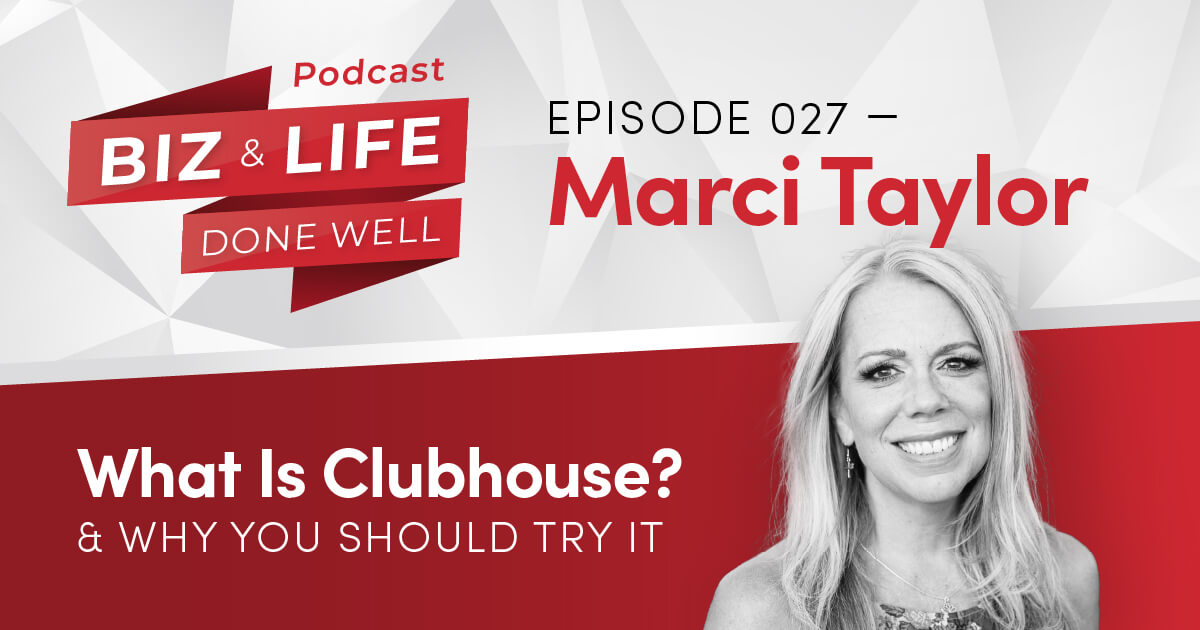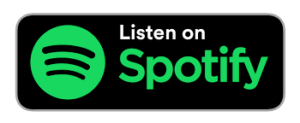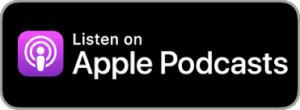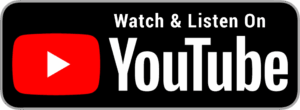Title: Marci Taylor – What Is Clubhouse And Why You Should Try It
Guest: Marci Taylor
Peter: To the Biz and Life Done Well podcast, where we explore what it means and what it takes to do business and life well. I’m your host, Peter Wilson. If
Peter: you’re
Peter: like me, you’re intrigued by stories of common people who have achieved uncommon success in business and life. Join me as I interview fascinating people about how they got started, their successes and failures, their habits and routines, and what inspires them.
Peter: Everybody. Welcome to Biz and Life Done Well podcast with Peter Wilson. Today, my guest is Marcy Taylor.
Marci: Thanks for having me today. I appreciate it. My name is Marcy Taylor. I live in Sedona, Arizona in the beautiful Red Rocks, and I have a consulting firm where I do strategy management and marketing for professional services firms, especially law firms in particular and high growth companies.
Peter: Just in case somebody wants to track you down, why don’t we get your coordinate?
Marci: Sure. My websites are mantrapartner.com. Mantra is mantra, and mantrasedona.com. And my email is marci@mantrasedona.com if you wanna reach out.
Peter: Today, we wanna talk about Clubhouse. Clubhouse is this new app that folks have probably heard about. You were kind enough to invite me to Clubhouse. So what is it?
Marci: Clubhouse is an audio app. It was launched last spring in April in the height of the pandemic. Last May, it had about 1,500 users. And as of this week, it has about 10,000,000 users. It’s grown quite rapidly.
It touts itself as an audio app. I refer to it as kind of a cross between live podcasting, conference calls, and sometimes bad talk radio.
Peter: Audio only.
Marci: Audio only. And one of the theories is that it became so popular was during the COVID pandemic because people were so sick of being on Zoom and having to perform on video that it was a lot easier to just hop on an audio app and listen and and talk and multitask rather than have to be on on Zoom all the time.
Peter: I find that to be the case as well. So I’ve been on for about whenever you invited me, think it was a couple of weeks ago, and it’s been really fascinating. It’s kind of a mixed bag. Found it
Marci: to
Peter: be a mixed bag so far. Think one of the appeals to me is that I was able to listen in on two conversations with two folks who I believe are just like icons in technology and marketing. One of them is a guy named Jay Abraham, who is lot of people don’t know who Jay is, but he is the guy that basically does a lot of the marketing for Tony Robbins and and people like that. I mean, he’s just phenomenal. And another one that I listened to was Marc Andreessen, the guy who started Netscape and now is with Andreessen Horowitz, which is a VC firm called Be The Boss.
And both of those conversations I mean, what was cool about it was it’s not like going to a conference where they’re standing up there giving a keynote. It’s much more conversational.
Marci: It really is. Andreesen Horowitz are the funders for Clubhouse, so that might be why they’re involved.
Peter: Little self serving there.
Marci: Might as well hop on the bandwagon. Right?
Peter: Right.
Marci: Since they’re paying for it. No. But I think that was one of Clubhouse’s original strategies that worked really well. I think Twitter did that initially too, where they they opened it up to influencers first. They really have taken from the playbook of other social media apps that have been successful with influencer strategy and really got some credible influencers involved early on.
So it created excitement that if you come on Clubhouse, you have a chance to actually talk to these people. A lot of them are in the tech and VC world. So if you’re an entrepreneur and you wanted to pitch your product, it’s kinda like getting to be on Shark Tank but on Clubhouse because you get a few minutes to pitch your idea and ask questions of people with money that actually invest. So they did really well with that. And then they’ve done the used the influencer strategy in other areas, you know, business, marketing, politics.
I saw there was a room with Guy Raz, who’s someone I listened to on NPR who who has the show how I built this. And unlike other things where you’re just passively listening on the radio or you’re in a, like you said, in a big conference and you may or may not get to ask your question, you might get to ask a question of someone that you respect that has actual experience and can give advice. So it’s really interesting in that way.
Peter: Yeah. It seems to be very interactive. One of the things I like about it is you can just drop in. So I went on a walk this morning and rather than listening to a podcast, I just decided to drop in on not quite a random channel, but it was a channel called like something about Breakfast Club. I don’t know.
It was like Breakfast Club for Millionaires or I don’t know. It’s there’s a lot of highly motivational and motivated people and, you know, highly caffeinated people.
Marci: Yeah. I mean, I think a lot of reason that people spend a lot of time on there is there’s a perception that the early adopters will have an opportunity to monetize it more so than people who hop on later. How Clubhouse is going to monetize it or the people on Clubhouse are going to monetize their presence there is still up in the air. They haven’t said whether they’re going to sell advertising or sell subscriptions or allow people to sell products or services on the app. So everyone’s just kind of taking this leap of faith that there’s going to be some pot of gold at the end of the rainbow, or they’re just doing it because it’s something that they’re interested in.
Mean, there’s music and sports and, like I said, politics and arts and culture and social issues. So everyone’s not on there just to make money. I mean, they’re on there to collaborate and meet other like minded people
Peter: Exactly.
Marci: Who share their interests.
Peter: Yeah. That’s true. So how do you get on?
Marci: Well, the product is technically still in beta and it’s still invitation only. So their marketing strategy, number one, was the influencer strategy. Number two is what I call the FOMO strategy, the fear of missing out. Scarcity. Yep.
Exactly. Chaldini at its best. So it’s invite only, especially like in January and earlier this month as they started to get more press and people started hearing a buzz, it was like, oh, how do I get an invite? And can I get an invite and all that stuff? So it is by invitation only.
And we should say it’s still only for people with iPhones or the Apple iOS. They haven’t released a version for Android yet or for other operating systems. So it’s still only for people with iPhones. I don’t know if that’s intentional for exclusivity or something or if they just don’t have the technology down just yet. But, yep, someone sends you an invitation and then you get on there, and you create a profile like you do on any other social media app.
What I found interesting about this one, and I like your profile on there too, and you caught on right away, they’re not like other apps in that they’re much more personal. You know, it seems like the culture of the app is to showcase that you’re a multidimensional person. Like, it’s it doesn’t just say Peter Wilson, marketer. It had you know, you can talk about your other interests. And for people who are parents, they you know, in other business settings, it might not be so great to talk about your kids, but everyone focuses on if they have a family of whatever type.
And then based on the interest that you selected, it automatically assigns you to follow certain people. So the people who are already influencers get way more followers because they were involved early on. And it doesn’t necessarily suggest it, but one of the ways that you kind of find out about more rooms where people are talking about subjects of interest to you is to follow clubs. So that’s kind of the other thing that you do right away. If you kind of want to just see what’s going on and and get notified of different conversations that you may be interested in.
Peter: One of the things, going back to the profile was the fact that one of the things I found interesting is it’s very limited in what basically you’re you have to type it in on your iPhone or iDevice. And there are two links available that you can put in there. So you can’t put in a web link or an email link or anything like that.
Marci: That’s right.
Peter: But you can put in your Instagram profile and your Twitter handle. And those are the only two. So what I’ve done in mine is I linked to my personal Instagram. I’ll probably switch that to my business Instagram account because within there, on my business Instagram account, I have a kind of like a link tree
Marci: in
Peter: my bio. So in Instagram bios, you’re allowed to have a single link. And most people on Instagram will say link in bio. So what they’ll do is whatever that link in the bio is on Instagram will go to basically a web page that has a bunch of links on it for different things of interest. So we’ve created our own internal version of Linktree that we use at Biz Marketing that seems to be able to get people what they need to do.
But that’s probably a big opportunity for them to expand the profile qualities, but sort of a similar vibe to Instagram. They don’t really want to have people using that as a like the profile as a way to link off and spend a lot of time off the platform. They really want you to stay on the platform.
Marci: They do. But they don’t have an internal direct messaging function yet.
Peter: Right.
Marci: So that’s kind of a I don’t know if it’s a flaw or if it’s just they haven’t gotten to that yet. So I you know, you hear people talking in rooms and you wanna link up. And other than following each other, people just say DM me, but you have to do that through Twitter or Instagram because that’s the only way you can message people. So that’s something that they’re probably still working on.
Peter: What do you see the biggest value to a business of Clubhouse right now?
Marci: You know, I’ve talked to a lot of friends and colleagues and we’ve talked about this a little bit. I don’t know yet. And I think no one really knows yet. I think if you’re in certain businesses, it makes a lot of sense. If you’re an entrepreneur in any way and have a product that you’re trying to scale, it makes a lot of sense to be on there because there’s a lot of advice in that area.
And like I said, people who invest in that area are in these rooms and listening for opportunities? Yeah,
Peter: I actually saw one the other day that I listened in on called Dental Tank. So it was a spin on Shark Tank.
Marci: Oh, cool.
Peter: And sometime in May, they’re actually having an event, a real in person event in Miami Mhmm. For all these dental entrepreneurs, but they were actually sharing ideas. And so there’s like, you you have five minutes to pitch your idea. The moderator kind of lines it up as to who gets to talk and then they give feedback on it. I’m a little leery of some of that because I say I’m leery just because as an entrepreneur, I don’t necessarily want to share my very best ideas with just random people.
But Mhmm. Maybe that’s a mindset I need to get over. But, anyway, there are a lot of investors, and I have seen Damon John from Shark Tank Mhmm. On various channels that I’ve been on as well.
Marci: That’s interesting. Yeah. Yeah. I think that there’s an opportunity to network if networking is a big part of your business. If you’re in a business that that relies heavily on referrals, that’s great.
If you’re in the services business, the professional services business, there’s certainly an opportunity to position yourself as an expert in a particular area because it’s still early on and who’s an expert is still being kind of played out a little bit. I think if your goal is to be one of the leading influencers on Clubhouse, I think you and I and everybody else missed the boat on that because I think if you were there in June or July, you probably had that opportunity. But now in order to do that, I think it would require pretty substantial commitment. You’d have to be on it you know, twenty hours a day.
Peter: Well, I’ve seen I’ve seen I’ve seen Gary Vee. You know, he didn’t start out on Clubhouse, but he’s on Clubhouse now. And so and I was he’s talking about Clubhouse. So
Marci: Yep.
Peter: I see. And I I did hear in a podcast this morning or in a clubhouse room that I was listening to, the one of the people who was running this thing said they started early on and spent sixteen hours a day for a few months trying to figure the thing out. I mean, it was just like an insane amount of time that they put into it. But one of the things that I’m interested in learning about though, is the opportunity for, you know, regular folks like you and I to host chats. Now is that that’s a possibility too, right?
Marci: It’s totally a possibility. I’ve started some rooms with friends just to play with the technology and and get used to it. But maybe if I can talk about my own example that might help your listeners
Peter: Yeah.
Marci: For through how they would do it. So, I mean, I think it’s really important to know why you’re on there and and what you’re trying to sell. For me, I kind of have two two areas. For me to go on there and market general marketing skills, I’m not sure if that’s really useful because there’s so many marketing people on there. Yeah.
But to the extent that that we or your clients have some sort of niche, for example, the law firm marketing, you know, that’s still relatively new. It’s relatively specialized. When I joined in January, there weren’t very many people in legal on the app. And now, like in every other industry, it’s really exploding. And that’s an area where I have some unique expertise that not a lot of people have.
And so I I think that there’s an opportunity to differentiate myself there. And so just by the conversations that I participate in and who I follow and who who follows me and some other people who do what I do in the industry, I’m gonna start leading conversations and hosting rooms and perhaps starting a club or trying to differentiate myself there and just figuring out what type of offering I would offer them. I typically work with midsize and larger firms and a lot of the people in the industry that I’ve noticed so far, a lot of solo lawyers and really entrepreneurial lawyers. So I have to think through what kind of service offering I would provide to them. And then the other area that’s of interest to me, I live in Sedona, Arizona.
And just before the pandemic, I was about to launch a coworking space in a in a business called RemoteWell to encourage people to come to Sedona and live and work remotely for a month or four months or longer and work remotely and focus on their wellness. And on this particular app, there’s a lot of conversations about wellness and mindfulness and meditation and consciousness and how to incorporate that in your lives and how very important that is, especially since the pandemic and since our lives have changed so much. So I think that there’s an opportunity to pursue that there. So those are just two specific examples of, you know, I I have services that I can offer, and they’re rather specific and, you know, supply and demand, there aren’t a ton of people offering those particular services. So to the extent that I can network with people who are also working in those areas or interested in those areas or have a client or customer base that’s interested in those areas as well, I think it’s a good opportunity.
Peter: And looking down the road, it seems like because I think Clubhouse really has you know, there there’s other apps that are trying to do what they do, but I think Clubhouse really has the momentum that when the audience becomes more wide spread, right? Like right now, it’s just, hey, all the cool kids have it, or all the cool kids are doing it. But when it becomes more mainstream, which I believe will happen given the momentum that it has, And it becomes more like I remember when Instagram first came out, you know, I couldn’t figure out how to use the dang thing. The next thing you know, my daughter’s on Instagram and
Marci: She got it in thirty seconds. Right?
Peter: Yeah. And and so I I believe Clubhouse will end up becoming mainstream. I think that’s probably their goal. I could see folks using it in a similar fashion to Let’s say that I wanted to have an event. One of the things I’ve been thinking about is having a mastermindcocktail hour with some of my clients.
Now I work with a lot of business owners. I know that there are many of them that would enjoy talking to each other about just life and what they’re doing and like to meet each other and that sort of thing. So I think that would be a good I think as a cocktail party, it’s a little difficult because you can’t really have side conversations. But in terms of gathering a group of folks so I could easily see promoting an event. Right?
Like for me, I could promote event to all my clients, 150 clients. I could promote it to all of them. And we’re just saying, hey, we’re going have a clubhouse. We’re going to have a chat. What do we call them?
Is it I don’t even know the nomenclature.
Marci: It’s a room. You’re going to have a room.
Peter: Room. Okay. So we’ll all have a room and we’ll be in a room and I could easily see that. Right now that’s not happening. It’s just kind of like clubhouse centric.
Right? I don’t see a lot of tangential social media marketing going on about Clubhouse per se.
Marci: I’m just starting to see it, Peter. Like, I’m starting to see people do screenshots of a room and then and then put them as their photos on their posts in Instagram.
Peter: Well, they’re yeah. And And things like that? There are a few examples. There’s a guy named Elon Musk. I don’t know if you’ve heard of him.
Marci: Yeah. Never heard of him.
Peter: So he he did he’s done a couple rooms, and it’s 5,000 is the max capacity in a room. Yep. And I tried to get in there. There’s no way. You know, it was a psych max.
Marci: Well, and then they have overflow rooms. Well, they actually attribute Elon Musk’s first appearance on Clubhouse for that first big spike that they had in the January, February time period. Yeah. You know? Because he kinda went on and endorsed it and did some silly things and invited Vladimir Putin to come on and talk to him on Clubhouse and just, you know, as he does eccentric and outlandish things because he can.
And, yeah, that’s what they said that that was the the reason for the first spike.
Peter: Well, this has been fascinating. Great conversation. I can’t wait to see what Clubhouse turns into, and I really appreciate your time today. So if folks wanna get in touch with you, Marci, what is the best way again?
Marci: So my email is Marci, marci,@mantra,mantra,Sedona.com. And if you’re interested in the remote working business, that website is remotewell.co. And we should offer to your listeners if they do need an invitation to to Clubhouse, we both have some. And they should hop on and just check it out and listen for a little while before you say anything and because there are certain cultures and customs in the app like there are for any type of social media, but start participating. And if you have something valuable to say or questions that you want to ask, definitely check it out and let us know what you think and what you’ve learned as well.
Peter: Excellent. Excellent. Yeah. If anybody wants to reach out to me, you can just send an email to podcast bizmktg dot com. And if I have any available invites, I’ll shoot them your way.
First come, first serve. Marcy, thank you so much for being with us today.
Marci: Peter, thanks so much. It’s always fun talking to you. I appreciate the opportunity.
Peter: Thanks for listening to this episode of Biz and Life Done Well with Peter Wilson. You can subscribe to us on iTunes, Google Podcasts, Spotify, and most of the other popular podcast platforms. Please tell your friends about us and leave us a review so even more people will find out about us. Thanks again. We’ll see you soon.



